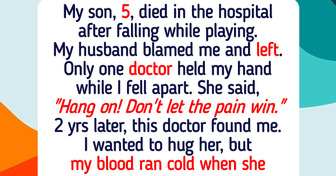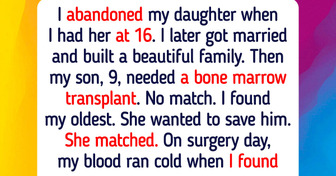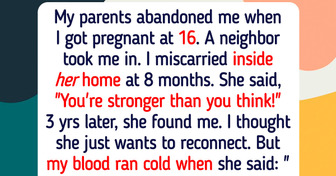Interesting interpretation. This is the type of dream I sometimes see. I guess, I'd mostly agree with Freud's approach.
13 Dreams You’ve Probably Already Had—And Their Hidden Messages, According to Specialists

Dreams are defined as series of images or events that are happening in an individual’s mind when sleeping. There are different experiences for everyone, but there are common dreams that most people might have experienced or seen. In this article, we will delve deeper into dreams and its interpretation.
The scenarios and narratives that happen when you’re in the REM (rapid eye movement) stage of sleep are called dreams. It is believed that dreams are essential for the unconscious mind’s functions and provide insightful hints about how it works.
Dreams, according to Freud (1900), are the “royal road to the unconscious” because they allow the ego’s defenses to be weakened, allowing some of the repressed material to surface in awareness, albeit in a distorted form. He also believed that people may become more self-aware and gain important knowledge to assist them in dealing with the issues they face in their lives by examining their dreams.
Interpreting dreams has been utilized as a therapeutic technique. If you want to dive into the signs or meanings from your subconscious, it might be a useful tool for self-awareness. Analyzing your dreams might help you identify hidden meanings and unconscious conflict you might be experiencing.
The most common dreams and their meanings:
1. Falling. Falling dreams are common and often symbolize feelings of insecurity, anxiety, or a loss of control. They can reflect underlying emotions such as stress or being overwhelmed by life’s challenges. Sometimes, these dreams occur randomly, perhaps triggered by sleeping near the edge of the bed or recalling a real-life experience like hiking near a cliff. According to Dr. Nereida Gonzalez-Berrios, M.D., a certified psychiatrist, “It also indicates fear, terror, and anxiety that comes out of losing grip over significant things.”
However, if falling dreams happen frequently, they may be linked to deeper issues, such as anxiety, sleep disorders, or post-traumatic stress. This interpretation is supported by what early psychiatrists, like Sigmund Freud and Carl Jung, who viewed dreams as hints from the unconscious mind, carrying important messages. And Jung argued that it may provide insight into our inner problems and teach us how to resolve them.
2. Being chased. Dreams about being chased can be intense and unsettling, often leaving you shaken long after waking up. While science hasn’t pinpointed exactly why we dream, research suggests that dreams reflect our daily experiences, emotions, and stress levels. Being chased is one of the most common dream themes, especially in childhood, and is often linked to anxiety or avoidance in real life. Stress, fear, or even a frightening movie can trigger these dreams.
However, if they happen frequently, they may signal deeper concerns like ongoing stress, overwhelming responsibilities, or something you’re trying to avoid. Identifying and addressing these stressors may help reduce them.
3. Death. Dreams about death are common and often symbolize significant life changes or the end of a particular phase rather than indicating actual death. Such interpretation is in line with Hall’s cognitive theory that suggests that dreams are not random or meaningless but are reflective of our waking thoughts and experiences, offering valuable insights into our subconscious mind.
While unsettling, death-related dreams are typically not indicative of actual death or a mental health disorder. However, if these dreams are recurring and causing distress, it may be beneficial to explore underlying anxieties or stressors in your life.
4. Being naked in public. It would feel awkward and unsettling if you find yourself naked in a dream. Such a dream often symbolizes vulnerability, self-image concerns, or a desire for authenticity.
Psychologists have different interpretations of naked dreams. Sigmund Freud believed they stemmed from hidden fears, shame, or repressed desires. On the other hand, Carl Jung saw them as a way of revealing your true self, free from social masks. Cognitive psychologists suggest these dreams reflect concerns about self-image and social perception. While Gestalt theory views every part of the dream as a reflection of the dreamer’s emotions, urging self-exploration. From an evolutionary perspective, some researchers argue that these dreams tap into ancient fears of vulnerability and exposure.
5. Being lost. Dreams about being lost are common and often reflect feelings of anxiety, confusion, or uncertainty in our lives. Whether you’re lost in a forest, a crowd, or an unfamiliar place, these dreams may indicate a need for direction or guidance. They can symbolize a sense of being directionless or unsure about your current path.
6. Losing your voice. The fear of losing your ability to communicate successfully is symbolized by this dream. It might also represent feelings of being ignored or not listened to, and could signal stress or anxiety connected to self-expression.
This interpretation can be linked to G. William Domhoff, a leading dream researcher, Waking Life Theory. He believes that dreams reflect a person’s daily thoughts and concerns.
7. Sitting an exam. Dreams about taking exams often reflect feelings of self-criticism and the pressure to meet high expectations in waking life. Such dreams may indicate that your moral beliefs are being tested or that you’re experiencing anxiety about personal challenges. It may be linked to real-life stressors, especially related to work or personal ambitions.
8. Arriving late. Dreams about being late often symbolize underlying anxieties and pressures in one’s life. They may reflect feelings of being unprepared, overwhelmed, or fearful of missing out on important opportunities. Such dreams can serve as a subconscious prompt to evaluate and address these stressors, encouraging better time management and prioritization.
9. Pregnancy. Pregnancy dreams may reflect personal experiences, desires for parenthood, life changes, anxiety, or hormonal shifts. If you’re actually pregnant, these dreams are normal. If not, they might symbolize growth, such as a new idea, goal, or personal transformation.
Carl Jung’s dream theory believed that dreams directly expressed the unconscious mind through symbols and metaphors. Additionally, dreams help balance the psyche and offer glimpses of the future, preparing the dreamer for what’s to come that can be applied to this type of dream.
11. Meeting someone famous. Dreaming about celebrities can reflect subconscious desires, personal aspirations, or self-esteem issues. These dreams may symbolize a longing for recognition, admiration of certain traits, or the need for validation. Different scenarios have various interpretations; for example, seeing a celebrity could mean you admire their qualities.
Sigmund Freud proposed that dreams serve a scientific purpose, primarily as a form of wish fulfillment, allowing individuals to act out desires they couldn’t in real life. But this idea was challenged, leading Freud to the theory that dreams were manifestations of the unconscious mind’s workings.

12. Flying. Flying dreams are frequently thrilling and represent freedom, ambition, or underlying fears. In various cultures and psychological frameworks, they are associated with a desire for freedom, overcoming challenges, or gaining a wider view. Positive dreams about flying can mean empowerment and personal growth, while negative ones may indicate anxiety or a sense of losing control.
13. Teeth falling out. Dreams about losing teeth are often linked to stress, personal loss, or subconscious fears. Stress and anxiety, whether from work, relationships, or life challenges, can also manifest in dreams. Major changes in life, which are paired with worries, may also contribute to the possibility of having this type of dream.
Reccurring dreams and nightmares.
It is believed that recurring dreams stem from unresolved life problems or daily frustrations. They may help process past experiences or prompt individuals to address real-life issues. Some recurring dreams may have a terrible atmosphere, but they still differ from nightmares.
When you wake up from a bad dream with a clear memory of it while feeling anxious or fear, it can be a nightmare. It can cause fear, anxiety, and sleep issues. They may be triggered by stress, anxiety disorders, trauma, or medical issues.
Tips for analyzing and interpreting your dreams:
Dream analysis may help you with self-awareness and personal concerns linked to your dreams. These tips may help in interpreting your dreams:
- Recall your dreams daily. Try to remember your dreams as soon as you wake up. Keep a notebook or voice recorder nearby to jot down details before they fade.
- Explore and appreciate your dreams. Share your dream with a group to discuss its emotions and offer insights; it can help you reflect on how it connects to your life, to gain personal clarity and understanding.
- Talk about your dreams. Discussing your dreams with someone, especially a therapist, can help you notice patterns or hidden meanings in the way you describe them.
If you’re experiencing recurring dreams or nightmares that affect your well-being, consult a healthcare professional to rule out conditions like anxiety or sleep disorders. If it’s not a medical concern, a sleep consultant can help improve sleep and manage troubling dreams.
Dreams not only exist when we close our eyes; it can also mean aspirations or goals to be achieved in our reality. These stories of dreams come true may put a smile on your face.
Comments
Related Reads
How 14 Disney Princesses Would Look If They Were the Villains in the Movie

I Left My Wife on Our Wedding Night Because of Her Sick Surprise

14 Wonderful and Funny Neighbors Who Keep Everyone Around Them Happy

12 People Who Were Shocked After Accidentally Overhearing a Conversation

18 Airplane Passengers Who Had an Unforgettable Flight

I Heard a Secret Conversation Between My Husband and His Work Buddy — I’ve Never Been This Humiliated

12 Moments That Teach Us to Stay Kind, Even When Life Becomes Heavy

12 Moments Where Quiet Kindness Turned Strangers Into Family

15 Stories That Teach Us to Choose Kindness, Even When the World Goes Blind

15 Moments That Inspire Us to Be Kind, Even When the World Turns Against Us

15 Moments That Show Kindness Is Quiet but Changes Everything

12 Life Moments Where Quiet Kindness Played the Main Role
















